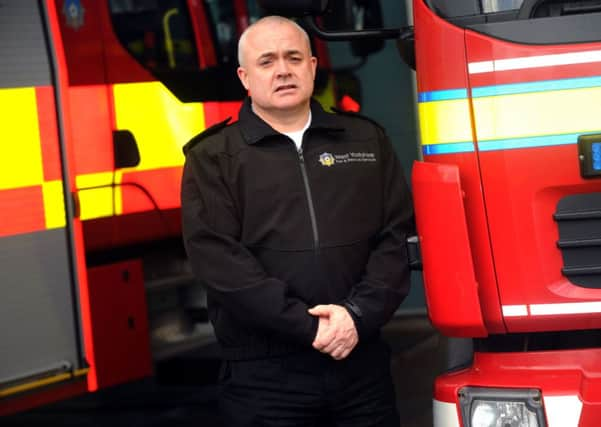Fire chief warns of ‘limitations’ during today’s strike action


The Fire Brigades Union (FBU) has announced plans for a f24-hour strike which started at 9am.
This is the longest strike period the brigade will have covered during the ongoing dispute and West Yorkshire Fire Service’s Assistant Chief Fire Officer Dave Walton has said that the contingency plans may not be able to cope with an influx of calls.
Advertisement
Hide AdAdvertisement
Hide AdACO Walton said: “Our contingency plan and crews will be tested for an extended period of time. Whilst we have every confidence in the skills and abilities of our contingency crews, it is an undisputable fact that the level and scale of fire fighting resource available to us will be much reduced when compared to a normal day.
“Should we experience a large number of simultaneous calls or a major incident it is likely that other emergencies may not be attended as quickly as we would like, and some smaller scale incidents may not be attended at all. This could include incidents like people being locked out of their homes or debris on roads.
“Our ability to protect against rapid fire spread in the event of a major fire such as, for example, the Easter Monday Armley blaze, involving Tradpak Recycling and Hazel Products, may well be less than normal.
“This incident drew an initial response of 100 Firefighters and 15 fire engines from across the county and attendance spread over a number of days.”
Advertisement
Hide AdAdvertisement
Hide AdFollowing the incident, the brigade was commended for preventing the spread of fire to other business premises nearby.
During the strike, around half of West Yorkshire Fire Brigade’s fleet of 54 fire engines will be available and cover will be provided by those not striking as well as 49 Community Response Operatives (CROs). CROs are specially recruited for this purpose and undergo three weeks training. They are only deployed under the supervision of a senior officer.
ACO Walton added: “Whilst CROs are trained in basic emergency response they do not have the same level of expertise as a seasoned firefighter who has honed skills, for example, in technical rescue, water rescue or urban search and rescue.
“The public should be aware that although our contingency plans have been tried and tested over the last 12 strike periods, they do have limitations and none of us should become complacent.”
Advertisement
Hide AdAdvertisement
Hide AdThe decision for strike action relates to an on-going trade dispute between the FBU and the Government over its public sector pension reform programme. In particular current proposals to introduce a new Firefighters’ Pension Scheme from April 2015 to replace the two current pension schemes that most operational personnel are members of.
The strike will be followed by a period of action short of strike (ASOS) between 9am on June 13 and 10am on June 21.
On June 21 a full seven hour strike will start at 10am.
Last week, Matt Wrack, general secretary of the Fire Brigades Union, said: “Concerns over these unworkable proposals remain as valid and grave as ever, and the government has ignored all the evidence including it’s own reports.
“It is as ever a difficult decision for us to take, but the only way for us to resolve this unnecessary and costly dispute is for the government to start listening to reason.”
Should a county-wide major emergency occur an agreement is in place to recall Firefighters to duty.
For advice on how to protect your business or home, visit www.westyorksfire.gov.uk